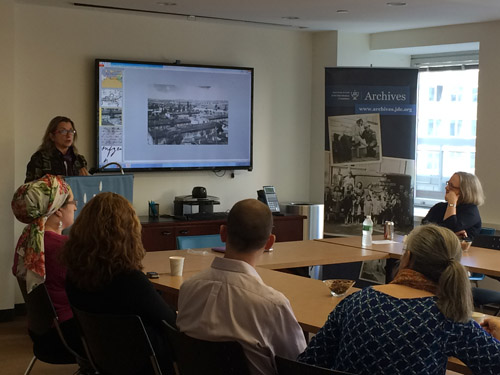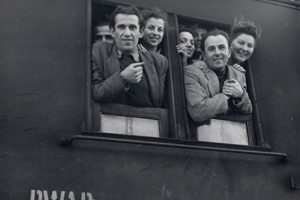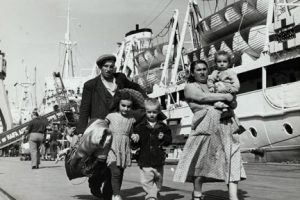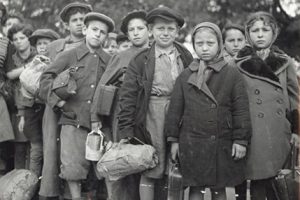
Uta Larkey Lectures on Post-Holocaust Interviews and Testimonies
There is much to learn from eyewitness testimonies from Jewish survivors of World War II, explained Dr. Uta Larkey of Goucher College at a recent “Lunch and Learn” session for staff at JDC’s headquarters in NY. The Central Historical Commission in Munich (Tsentrale Historishe Komisye) collected thousands of testimonies from Jewish survivors immediately after the Holocaust. The testimonies were recorded for historical purposes, yet subjects often felt psychologically rewarded by having had the opportunity to share their stories and those of their murdered relatives.

JDC-NY staff attend a lunchtime lecture by Dr. Uta Larkey
While there is much to gain from authenticity of a first-hand account, the territory of oral history is not without its hazards. For example, Dr. Larkey scrutinized the 1946 interview of Shmuel Lewin by Martin Rosenfeld in Pocking, the largest Displaced Persons camp in the U.S. Zone, and corroborated facts from their recorded conversation with other sources. She then compared this early interview to a video interview of the same survivor produced by the Shoah Foundation half a century later. While the general recollection was similar, certain key episodes from the early interview were not recounted in the later one, and the perspective of the subject had changed. One can surmise that memory is not always reliable and/or that the interviewee omitted some episodes and reflections for personal or political reasons.
Dr. Larkey presented other obstacles in gathering testimonies in the early post-war period. Having interviewers who had themselves been victims of significant trauma conduct the interviews took objectivity away from the process. Although interviewers and interviewees came from multilingual Eastern European families and could converse in at least one common language, they often did not come from the same geographical and cultural background. Despite the challenges faced in the interview process, the recording of first-hand testimonies recorded in 1946-1948 was groundbreaking. They vividly described the harshness of life as a Nazi victim through individual, personal stories. JDC staff was fascinated by Dr. Larkey’s research and these topics. Dr. Larkey is authoring a book about post-war German-language interviews and testimonies and the interactions between interviewer and interviewees.


